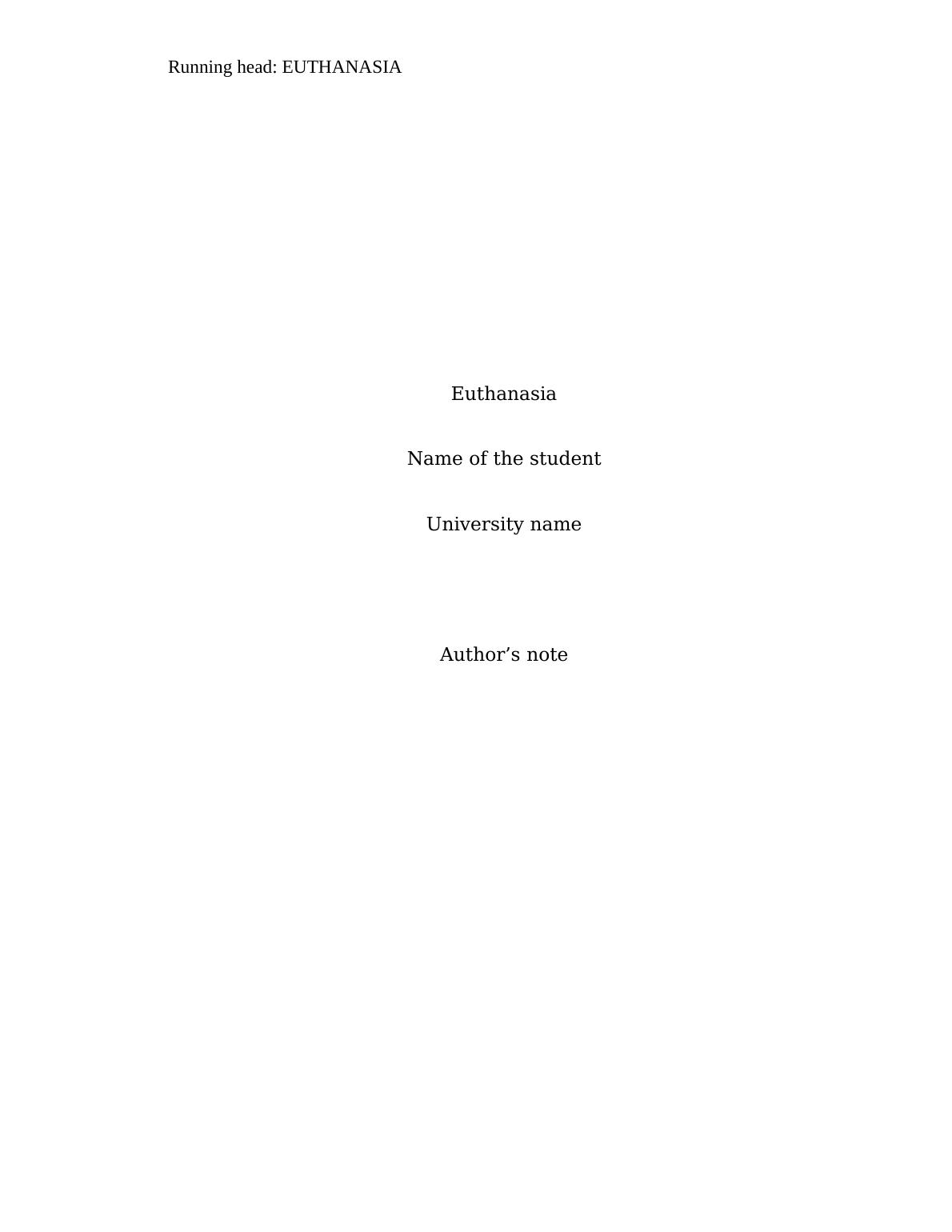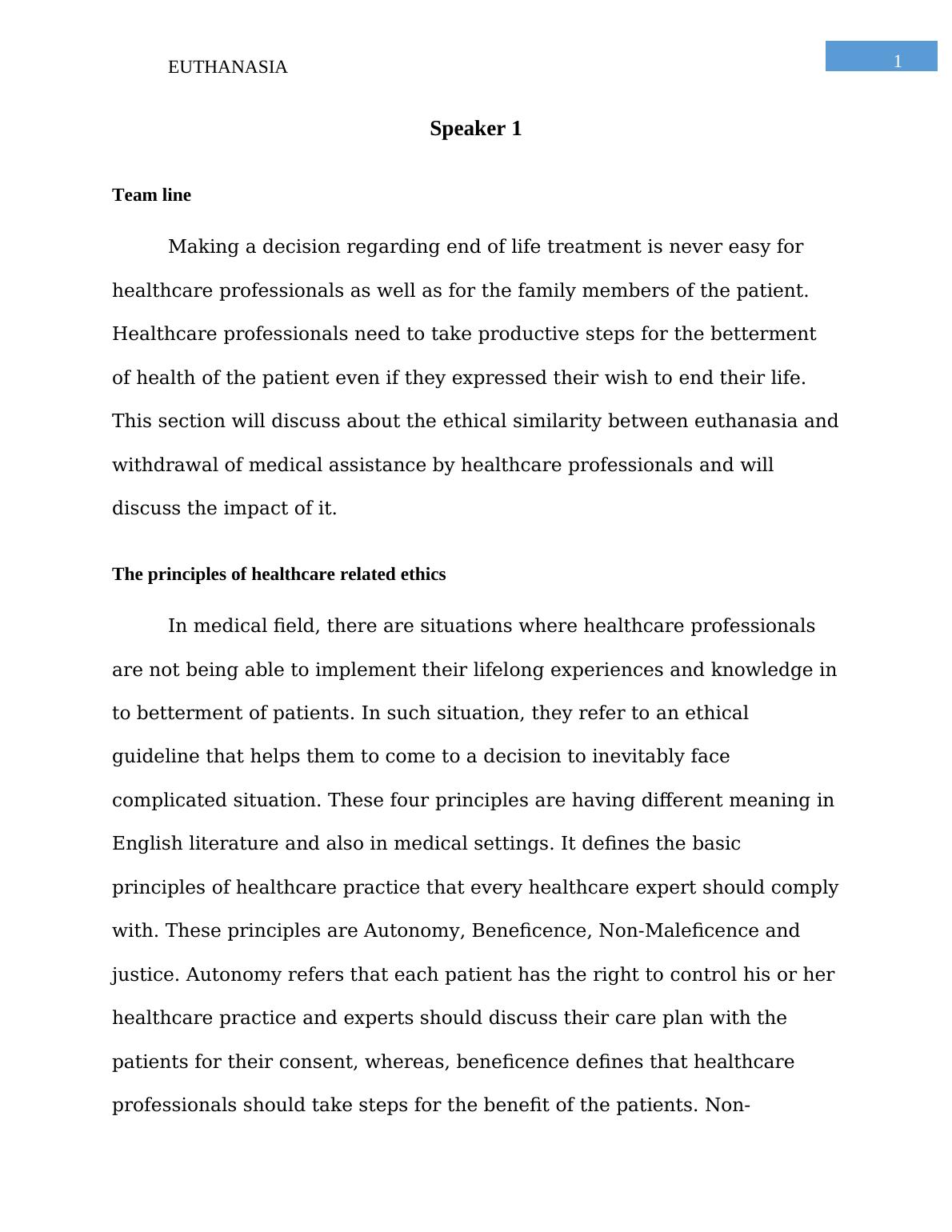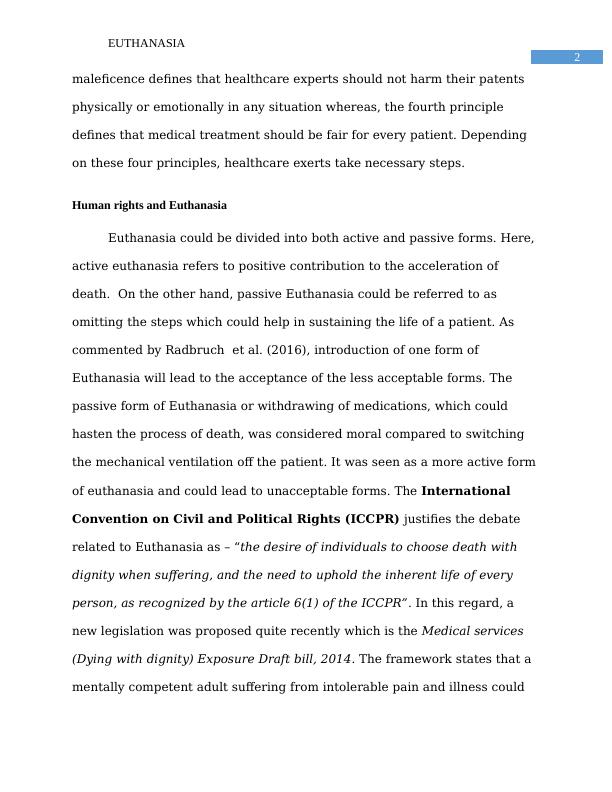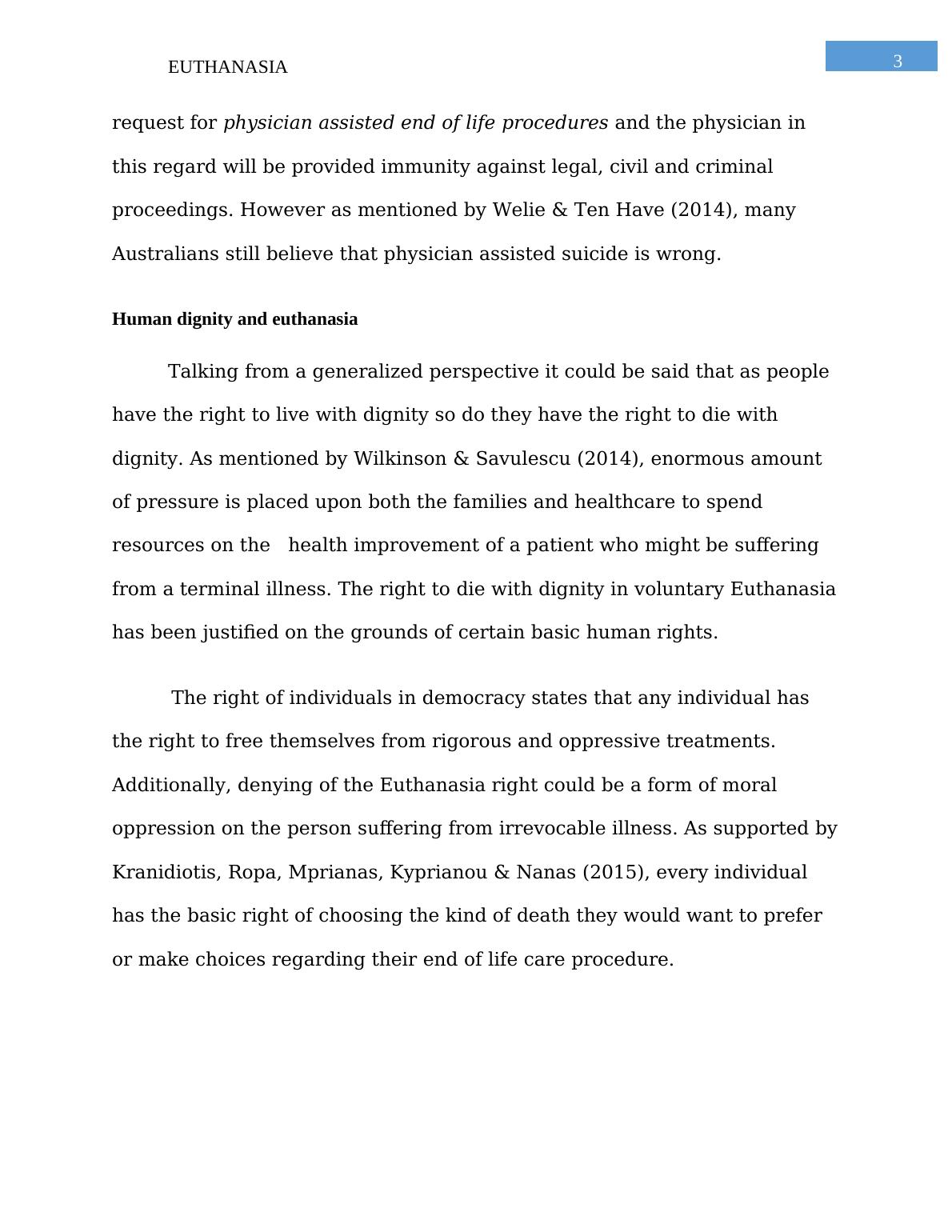(Solved) Assignment on Euthanasia
11 Pages2298 Words114 Views
Added on 2021-04-21
(Solved) Assignment on Euthanasia
Added on 2021-04-21
ShareRelated Documents
Running head: EUTHANASIA EuthanasiaName of the studentUniversity nameAuthor’s note

1EUTHANASIA Speaker 1Team line Making a decision regarding end of life treatment is never easy for healthcare professionals as well as for the family members of the patient. Healthcare professionals need to take productive steps for the betterment of health of the patient even if they expressed their wish to end their life. This section will discuss about the ethical similarity between euthanasia andwithdrawal of medical assistance by healthcare professionals and will discuss the impact of it. The principles of healthcare related ethics In medical field, there are situations where healthcare professionals are not being able to implement their lifelong experiences and knowledge into betterment of patients. In such situation, they refer to an ethical guideline that helps them to come to a decision to inevitably face complicated situation. These four principles are having different meaning inEnglish literature and also in medical settings. It defines the basic principles of healthcare practice that every healthcare expert should complywith. These principles are Autonomy, Beneficence, Non-Maleficence and justice. Autonomy refers that each patient has the right to control his or herhealthcare practice and experts should discuss their care plan with the patients for their consent, whereas, beneficence defines that healthcare professionals should take steps for the benefit of the patients. Non-

2EUTHANASIA maleficence defines that healthcare experts should not harm their patents physically or emotionally in any situation whereas, the fourth principle defines that medical treatment should be fair for every patient. Depending on these four principles, healthcare exerts take necessary steps. Human rights and EuthanasiaEuthanasia could be divided into both active and passive forms. Here, active euthanasia refers to positive contribution to the acceleration of death. On the other hand, passive Euthanasia could be referred to as omitting the steps which could help in sustaining the life of a patient. As commented by Radbruch et al. (2016), introduction of one form of Euthanasia will lead to the acceptance of the less acceptable forms. The passive form of Euthanasia or withdrawing of medications, which could hasten the process of death, was considered moral compared to switching the mechanical ventilation off the patient. It was seen as a more active formof euthanasia and could lead to unacceptable forms. The International Convention on Civil and Political Rights (ICCPR) justifies the debate related to Euthanasia as – “the desire of individuals to choose death with dignity when suffering, and the need to uphold the inherent life of every person, as recognized by the article 6(1) of the ICCPR”. In this regard, a new legislation was proposed quite recently which is the Medical services (Dying with dignity) Exposure Draft bill, 2014. The framework states that a mentally competent adult suffering from intolerable pain and illness could

3EUTHANASIA request for physician assisted end of life procedures and the physician in this regard will be provided immunity against legal, civil and criminal proceedings. However as mentioned by Welie & Ten Have (2014), many Australians still believe that physician assisted suicide is wrong.Human dignity and euthanasia Talking from a generalized perspective it could be said that as people have the right to live with dignity so do they have the right to die with dignity. As mentioned by Wilkinson & Savulescu (2014), enormous amount of pressure is placed upon both the families and healthcare to spend resources on the health improvement of a patient who might be suffering from a terminal illness. The right to die with dignity in voluntary Euthanasiahas been justified on the grounds of certain basic human rights. The right of individuals in democracy states that any individual has the right to free themselves from rigorous and oppressive treatments. Additionally, denying of the Euthanasia right could be a form of moral oppression on the person suffering from irrevocable illness. As supported byKranidiotis, Ropa, Mprianas, Kyprianou & Nanas (2015), every individual has the basic right of choosing the kind of death they would want to prefer or make choices regarding their end of life care procedure.

End of preview
Want to access all the pages? Upload your documents or become a member.
Related Documents
Importance of an Ethical Approach to Health Care Practicelg...
|6
|1317
|461
Euthanasia and its Importance in Severely Ill Patients Lifelg...
|5
|1228
|208
Understanding Do Not Resuscitate (DNR) Orders: Legal and Ethical Considerationslg...
|12
|3381
|313
Legal and Ethics: Analysis of Not for Resuscitation Order in a Case Studylg...
|7
|2695
|157
Euthanasia: Law, Ethics, and Controversieslg...
|8
|2757
|50
Euthanasia: Arguments for and Againstlg...
|7
|2844
|82
